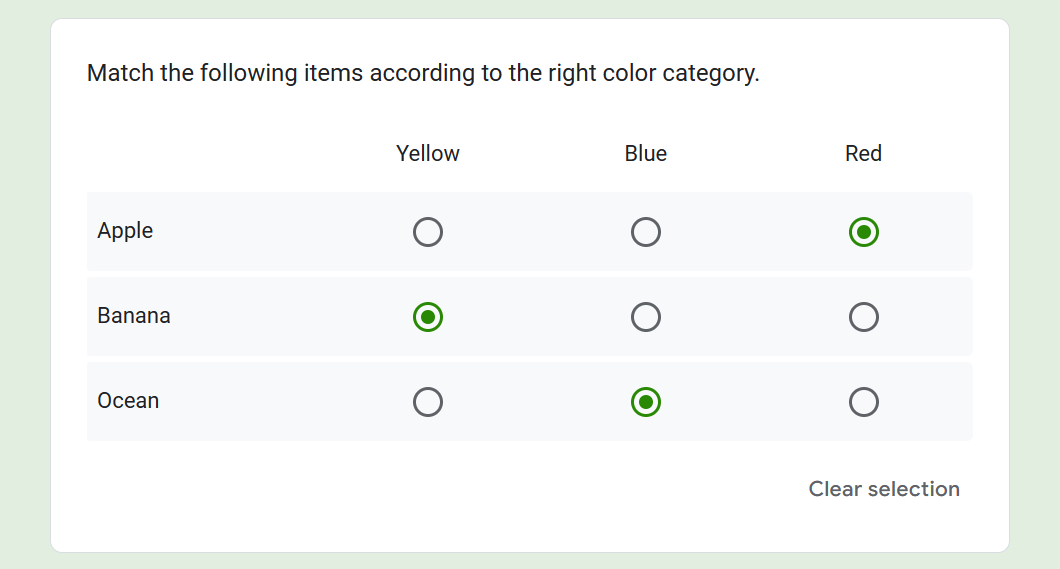
When creating ranking questions, customer satisfaction surveys, and similar types of forms, using a multiple choice grid in Google Forms is an excellent option. It allows you to present the questions and choices in an organized manner.
While the method above works, there are plenty of other things to remember when using multiple choice Google Forms.
Table of Contents
Using a multiple choice grid in Google Forms allows you to select one or more answers from a set of choices. They’re presented in a grid format, typically with the questions placed in the rows and the answers in the columns.
Countless types of forms can benefit from multiple choice grids. For demonstration purposes, however, we’ll show you how to create a ranking question or voting poll:





In addition to the basic setup, you can also modify additional settings to have more control over your multiple choice grid. Google Forms currently offers three features that you can take advantage of:
This feature is particularly useful when making ranking questions in Google Forms. For example, if you want respondents to rank three items from most to least favored, you can restrict them to providing only one answer per column.
In a multiple choice grid, we usually put the specific questions in rows and the options in columns. By shuffling the row order, users will see the questions in a randomized sequence, helping to ensure that the gathered data is accurate and honest.
This setting ensures that users cannot submit the form until they have provided an answer for each question in the grid.
You can access these options at the bottom-right portion of your question card:

You can virtually make use of multiple choice grids to create all sorts of questions and forms, including the four real-world situations:
Here, you can enter the items to be matched in the rows of your grid and the corresponding answers in the columns.

To ensure that respondents answer each item, we recommend toggling the options for limiting responses to one per column (and requiring one response per row).
You also can convert your Google Form into a quiz. Simply navigate to the “Settings” tab and toggle on the “Make this a quiz” option.

Multiple choice grids are also useful when creating selection-type questions. For example, you can use them to ask respondents about their availability during specific time slots for an upcoming conference or event.

If you want your users to rank a set of items based on priority or preference, you can also use multiple choice grids. A good example of this is asking customers to rank the products they are most likely (and least likely) to purchase next.

Among the eleven (11) question types offered by Google Forms, people can easily misunderstand and interchange multiple choice grids and multiple choice checkboxes. However, it’s important to establish their distinctions.
You should use a grid when dealing with questions that need a single answer per category. Examples of this include ranking forms and quizzes.
A checkbox is preferable for questions where users can select multiple answers simultaneously. For example, you can ask users to pick all the movies that they’re interested in watching (regardless of their order).
Using a multiple choice grid in Google Forms is an excellent choice for conducting customer satisfaction surveys and product rating forms. To set one up, simply follow our provided guide above, and you’ll be ready to go.
If you’re looking for quick ways to set up documents and sheets, explore our premium templates. Get them today at 50% OFF by using the code “SSP.”
Related: